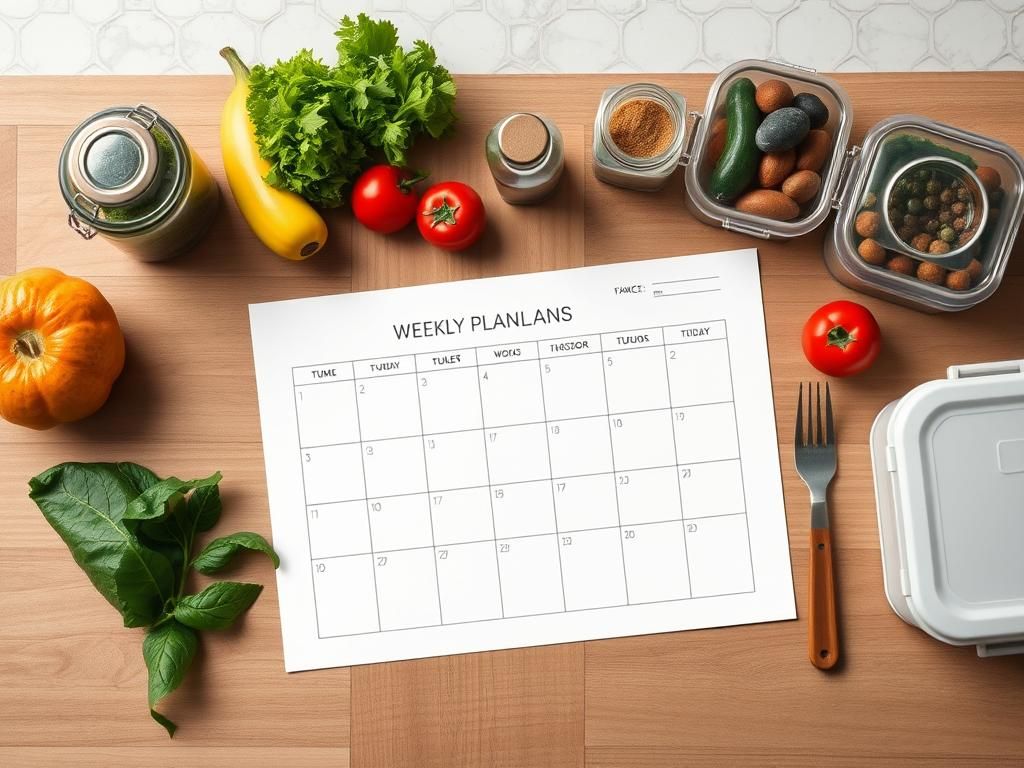
Practical steps for a calmer week
Meal planning doesn't need to be complicated. Use a few reliable habits to save time, cut waste, and reduce daily stress.
-
Take a quick inventory
Check fridge, freezer, and pantry before you plan. Build meals around what you already have to avoid duplicate buys.
-
Use a simple framework
Theme nights (grain bowl, pasta, soup) speed decisions and make shopping predictable.
-
Plan for leftovers
Intentionally double recipes that reheat well to create lunches or a second dinner.
-
Batch-cook staples
Cook grains, roasted vegetables, and a protein once to mix into several meals.
-
Build balanced plates
Aim for a protein, vegetable, and a grain or healthy fat each meal to keep energy steady.
-
Keep a flexible core
Plan two main recipes and note 2–3 swap-ins (canned beans, frozen veg) in case plans change.
-
Shop to the plan
Write the list in sections (produce, proteins, staples) and stick to it to save time at the store.
-
Prep in short sessions
Split prep into 15–45 minute blocks: chop, cook, and package so it's manageable.
-
Choose low-effort anchor nights
One-pot meals, sheet-pan dinners, or slow-cooker recipes reduce cleanup and decision fatigue.
-
Review and adjust weekly
Note what worked, what was wasted, and tweak portions or recipe choices for next week.
Pick three tips and apply them this week. Small, consistent changes make planning effortless over time.
